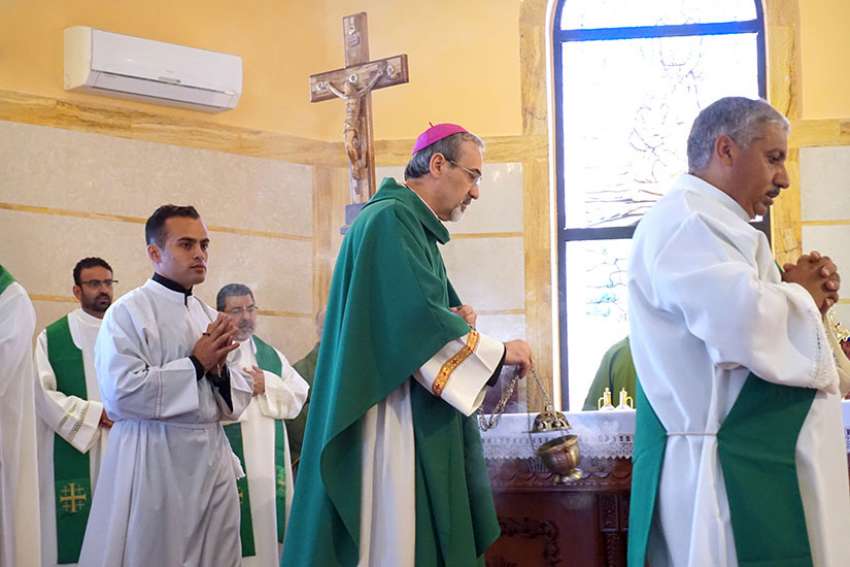Archbishop Pierbattista Pizzaballa, apostolic administrator of the Latin Patriarchate of Jerusalem, told Catholic News Service the first step was to "change completely the preparation for the religious Catholic marriage." Archbishop Pizzaballa explained that a revised teaching would entail "not just the immediate preparation to marriage that currently exists, but to start earlier the instruction with Catholic youth about what exactly marriage means."
Secondly, he said the church sought to "create counselling offices in order to avoid couples immediately going to the courts" to deal with family problems that might arise.
In many Arab countries, where Islam and Islamic law predominate, there are no civil laws regarding marriage and divorce. That means that the state relies on religious bodies such as Catholic family law courts to certify marriages.
Often, civil divorce is impossible for Catholics in the Middle East, with many resorting to leaving the faith – becoming Orthodox or even Muslim – in order to find a tribunal that will allow them to escape their marriage.
With the Year of Mercy that began in late 2015, the church streamlined procedures for annulment cases, which have become a matter of urgency in many societies in the Middle East.
Archbishop Pizzaballa spoke to Catholic News Service July 23 after the conference's closing Mass at Martyrs of Jordan Church. Delegations of clerics, judges and lawyers specializing in canon law from Iraq, Lebanon, Syria, Egypt, the Palestinian territories, Israel and Jordan participated in conference, which discussed a number of legal issues relating to marriage and the family. The proceedings were chaired by Father Emil Salayta, president of the church court in Jerusalem.
Archbishop Pizzaballa told CNS it is important to enhance the training for young people to "explain the meaning of a Catholic marriage and all the mutual commitments involved and to let them understand, with time in advance, what a Catholic marriage truly is."
He said the main purpose of the conference was to help priests and lawyers who work in courts understand new regulations following Pope Francis' September document bringing the basic legal instruments that govern the Latin- and Eastern-rite Catholic churches more closely into accord on several issues involving baptism and marriage.
"The decision has just been taken. Now we need to sit down with the pastoral offices, people, and other concerned offices to see what to do in order to build this," Archbishop Pizzaballa said.
"We cannot expect in one year to have everything ready, but to build it. We are aware of the problem and we have to find not-easy solutions," he said.
Archbishop Pizzaballa said today's youth often have a "completely different mentality" about commitment, and preparations are needed to help them to make lasting ones.
"In the past, the youth used to ask: 'Why do this?' Now they ask 'Why not?'" he said.
The papal nuncio to Jordan and Iraq, Archbishop Alberto Ortega Martin, stressed that Amoris Laetitia, Pope Francis' 2016 apostolic exhortation after two synods of bishops on the family, shows the importance of compassion that should be exercised by the church, especially on the subject of families.
He told conference participants that the Catholic courts should serve the law, demonstrate compassion and love through their judges and lawyers, and be witnesses to the greatness of marriage.


